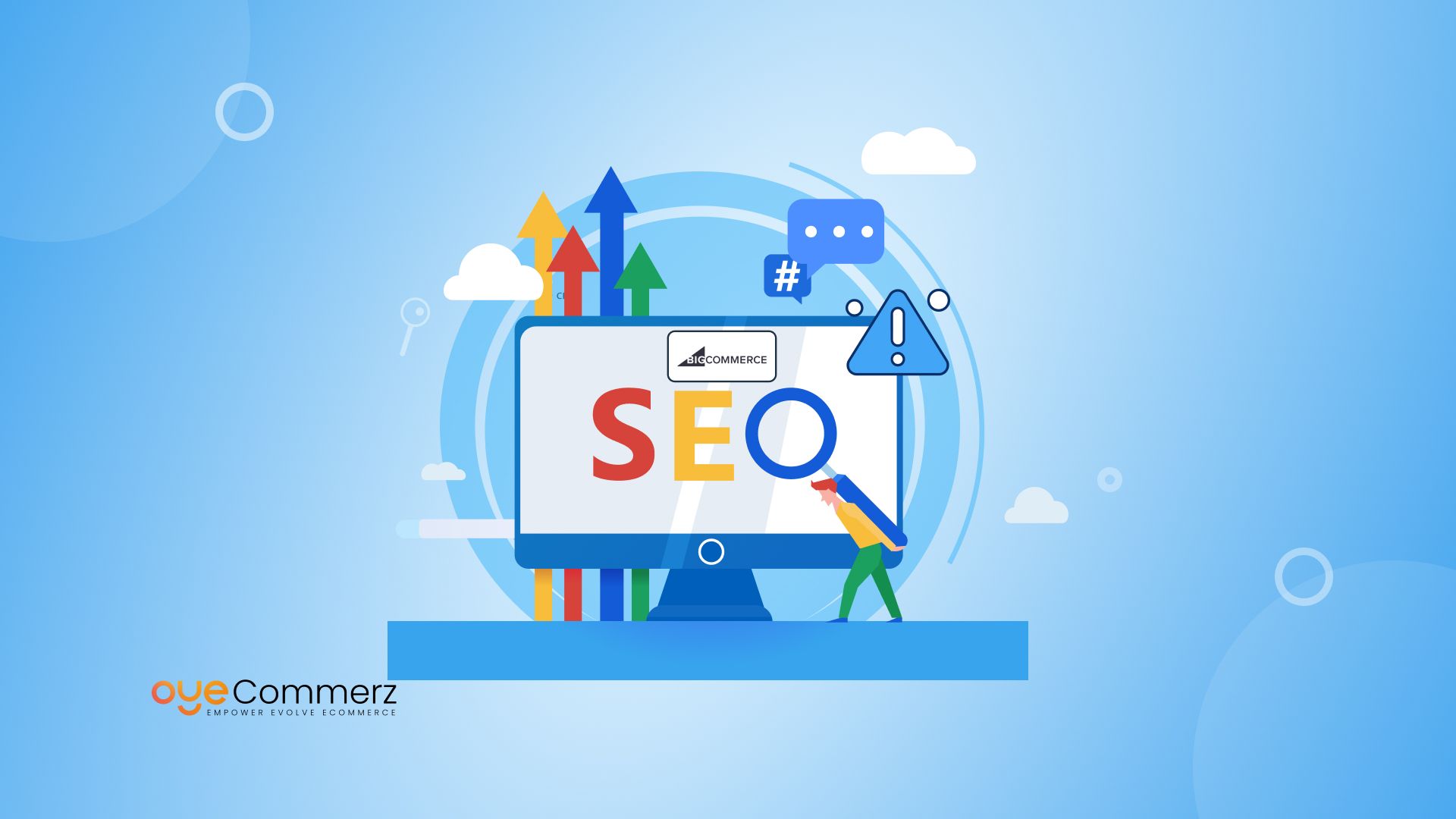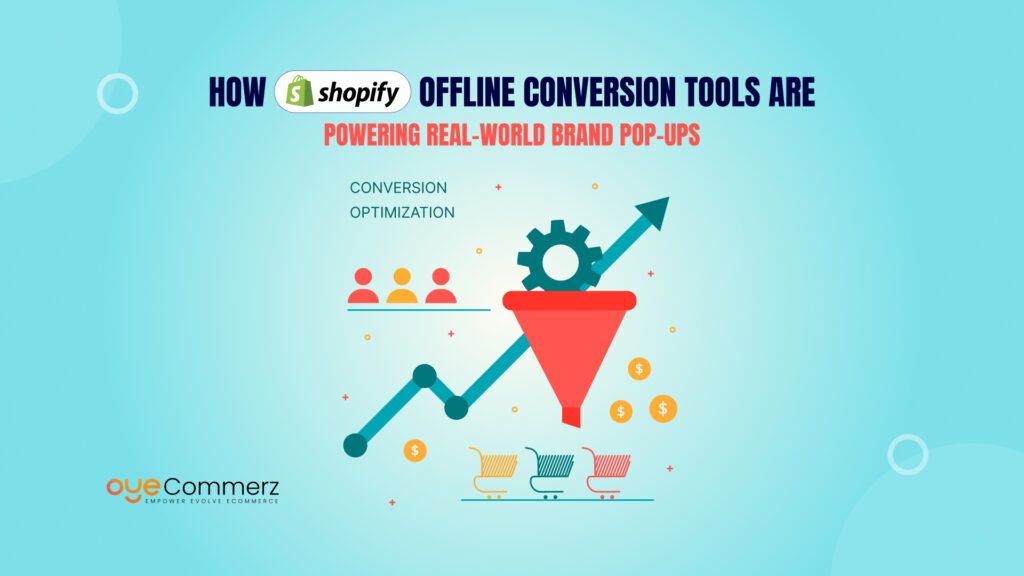Are you an existing Shopify business owner struggling to rank higher in search results despite your best efforts? You’re not alone. Many eCommerce store owners on platforms like BigCommerce face significant SEO limitations that hinder their online visibility.. But here’s the good news: By migrating to Shopify, you can overcome these challenges and unlock the full potential of your store’s SEO.
If you’re looking to boost your rankings and streamline your SEO strategy, it’s time to take action. From improving your app development for faster page speeds to optimizing your site’s technical aspects, Shopify has the tools to help you rank higher and perform better in search results. In this blog, we’ll walk you through the common SEO issues on BigCommerce and how Shopify can help you take control of your store’s growth.
Table of Contents
ToggleChallenges of SEO on BigCommerce
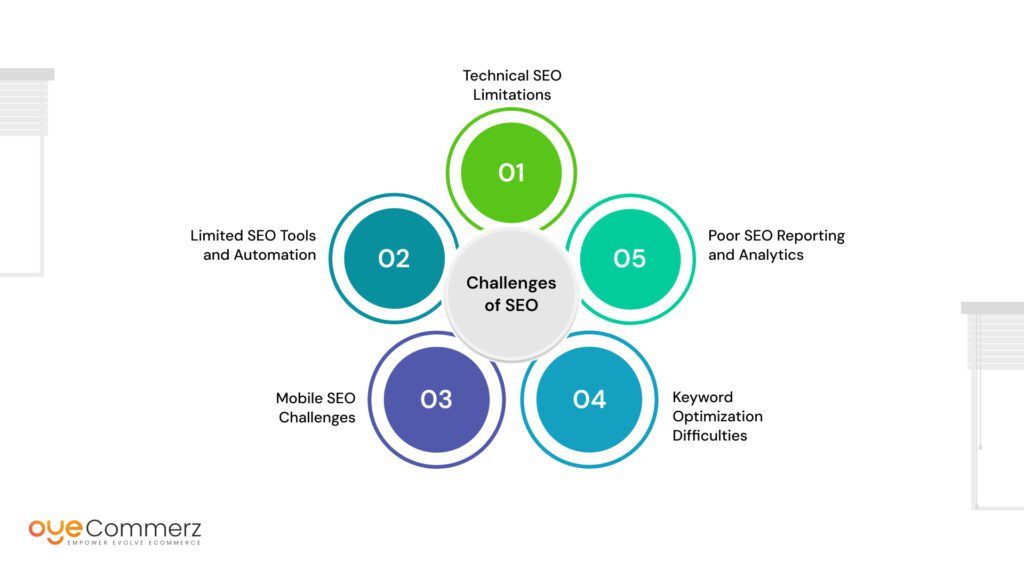
BigCommerce offers a robust platform for eCommerce, but when it comes to SEO, many businesses face significant challenges that hinder their ability to rank in search results. Below, we explore the most pressing BigCommerce SEO limitations that US-based Squarespace business owners transitioning to Shopify should understand.
In fact, businesses often see a 30-40% drop in organic traffic after making the switch to BigCommerce, due to these SEO constraints
1. Technical SEO Limitations
BigCommerce’s rigid structure creates obstacles for effective technical SEO.
- Fixed URL Structures: BigCommerce imposes a standardized URL format that is not always optimal for SEO. Customization is limited, making it hard to create clean, keyword-rich URLs that search engines favor.
- Schema Markup Challenges: Schema markup is crucial for rich snippets, but BigCommerce offers limited native support, requiring additional tools or custom development.
- Duplicate Content Issues: Without proper canonical tag management, duplicate pages can dilute your SEO efforts and confuse search engines.
2. Limited SEO Tools and Automation
BigCommerce lacks built-in, advanced SEO tools that are essential for scaling online visibility.
- No AI-Driven Suggestions: Features like automated meta tags or keyword suggestions are absent, forcing users to rely on manual optimization.
- Dependency on Paid Apps: Adding necessary SEO functionalities often requires third-party apps, increasing operational costs and complexity.
- Redirect Limitations: Handling 301 redirects for URL changes or migrating content can be cumbersome, risking broken links and ranking losses.
3. Mobile SEO Challenges
Mobile-first indexing is now the norm, but BigCommerce struggles to meet modern mobile optimization standards.
- Core Web Vitals Issues: Slow load times and suboptimal design often lead to poor scores in Largest Contentful Paint (LCP) and Cumulative Layout Shift (CLS).
- Inadequate Mobile Themes: Out-of-the-box themes may require significant customization to ensure responsiveness and fast mobile performance.
4. Keyword Optimization Difficulties
For businesses targeting long-tail keywords or niche markets, BigCommerce’s SEO capabilities fall short.
- Manual Content Adjustments: Optimizing individual product or category pages for keywords is time-consuming due to the lack of automation tools.
- Thin Content Risks: Without advanced content editing features, pages may lack the depth and relevancy needed to rank for competitive keywords.
5. Poor SEO Reporting and Analytics
Tracking and improving your SEO performance is critical, but BigCommerce doesn’t offer adequate tools for this.
- Limited Reporting Features: Built-in analytics lack detailed insights into organic traffic performance or keyword rankings.
- No Actionable Recommendations: Unlike platforms with AI-driven dashboards, BigCommerce doesn’t provide clear steps to improve SEO.
Impact of These Challenges on Business Growth
These BigCommerce SEO limitations make it harder for businesses to achieve high search engine rankings, resulting in:
- Lower Organic Traffic: A direct hit to visibility and customer acquisition.
- Increased Marketing Costs: Greater reliance on paid ads to compensate for poor SEO performance.
- Competitive Disadvantage: Competitors using platforms with advanced SEO capabilities gain the upper hand.
Impact of BigCommerce SEO Limitations on Business Growth
The BigCommerce SEO limitations discussed earlier don’t just affect your search rankings—they can have a ripple effect on your entire business performance. From lost visibility to increased costs, here’s how these challenges impact eCommerce businesses, particularly those looking to scale or compete effectively in the US market.
1. Declining Organic Traffic
When your website isn’t optimized for search engines, you lose out on potential customers searching for products or services you offer. BigCommerce’s rigid SEO infrastructure can:
- Prevent your site from appearing on the first page of search results, where most users click.
- Limit your ability to target long-tail keywords that attract highly specific, purchase-ready audiences.
As a result, businesses relying on BigCommerce may see stagnation or decline in organic traffic, directly affecting revenue.
2. Increased Reliance on Paid Advertising
To compensate for low organic visibility, businesses often turn to paid advertising, which quickly becomes expensive and unsustainable.
- Higher Customer Acquisition Costs (CAC): Paying for ads to reach your audience can eat into profit margins.
- Limited ROI: Paid campaigns only work while funding continues, whereas SEO offers a long-term traffic solution.
With the lack of robust SEO tools, BigCommerce businesses may find themselves caught in a cycle of high advertising spend with diminishing returns.
3. Higher Bounce Rates and Poor User Experience
BigCommerce SEO limitations occurs in mobile slow page load times contribute to a poor user experience, leading to:
- Increased Bounce Rates: Visitors leave your site before engaging with content or making a purchase.
- Lower Conversion Rates: A bad first impression often means customers won’t come back.
Google penalizes websites with poor user experience, further lowering rankings and traffic.
4. Missed Opportunities in Competitive Markets
Competitors using more SEO-friendly platforms like Shopify have an inherent advantage.
- Better Rankings: They can optimize their sites for visibility across a broader range of keywords.
- Enhanced Features: Platforms like Shopify provide built-in tools for analytics, keyword optimization, and content management, making it easier to adapt to market trends.
This disparity makes it harder for BigCommerce businesses to compete effectively, especially in highly competitive industries.
5. Inefficient Resource Utilization
BigCommerce’s reliance on third-party apps and manual SEO fixes leads to:
- Wasted Time: Teams spend more time troubleshooting and optimizing SEO manually.
- Higher Costs: Additional expenses for plugins and developers add up, cutting into the budget for growth initiatives.
This inefficiency puts BigCommerce businesses at a disadvantage compared to those leveraging platforms with streamlined SEO tools.
The Bigger Picture
SEO isn’t just about driving traffic; it’s about building a sustainable foundation for long-term growth. The limitations of BigCommerce’s SEO capabilities create challenges that impact multiple facets of business performance:
- Lower visibility in search engines.
- Higher costs for traffic acquisition.
- Difficulty adapting to changing SEO best practices.
Why BigCommerce SEO Falls Short Compared to Shopify
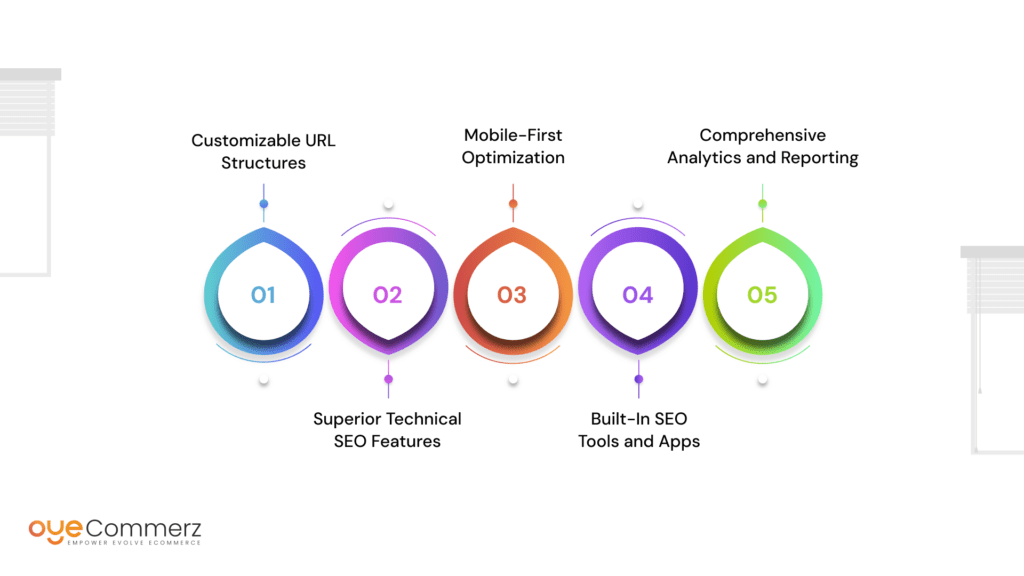
When it comes to overcoming BigCommerce SEO limitations, businesses often look for a platform that prioritizes SEO-friendly features. Shopify emerges as a strong contender, offering a range of tools and capabilities designed to help businesses rank higher, drive more traffic, and convert better. Let’s dive into the reasons why Shopify is the superior choice for addressing SEO challenges.
1. Customizable URL Structures
One of the biggest SEO hurdles on BigCommerce is its rigid URL structure. Shopify allows:
- Full customization of URLs to create clean, keyword-rich paths that improve search engine readability.
- Flexible redirects, ensuring broken links from old URLs are seamlessly managed without losing SEO value.
This makes Shopify an excellent choice for businesses targeting diverse keywords and localized markets.
2. Superior Technical SEO Features
Shopify addresses the technical gaps that limit BigCommerce SEO performance, including:
- Built-in Schema Markup Support: Shopify automatically integrates structured data, helping your products appear in rich results like star ratings and price highlights.
- Canonical Tag Management: Prevent duplicate content issues by specifying canonical URLs for each page.
- Fast Page Load Times: Shopify’s global Content Delivery Network (CDN) ensures lightning-fast speeds, which is critical for SEO and user experience.
These features ensure your site meets modern SEO standards without needing extensive technical expertise.
3. Mobile-First Optimization
Google’s mobile-first indexing demands that websites perform exceptionally well on mobile devices. Shopify delivers:
- Mobile-Responsive Themes: Shopify’s themes are optimized for responsiveness, ensuring your site looks great and performs well on all devices.
- Improved Core Web Vitals: Shopify provides tools to optimize Largest Contentful Paint (LCP), First Input Delay (FID), and Cumulative Layout Shift (CLS) for higher rankings.
By switching to Shopify, businesses can tap into the growing mobile shopping audience while maintaining competitive SEO scores.
4. Built-In SEO Tools and Apps
Unlike BigCommerce, Shopify includes a suite of built-in SEO tools and integrates seamlessly with powerful apps.
- Meta Tag Editing: Easily edit meta titles, descriptions, and alt text for every page and product.
- Keyword Optimization Tools: Apps like SEO Manager and Plug In SEO offer advanced keyword tracking and content suggestions.
- Automatic Sitemaps: Shopify generates and updates XML sitemaps automatically, helping search engines crawl your site efficiently.
These tools simplify the SEO process, making it accessible for businesses of all sizes.
5. Comprehensive Analytics and Reporting
Shopify provides actionable insights to help businesses measure and improve their SEO efforts.
- SEO Performance Tracking: Monitor organic traffic, keyword rankings, and conversions directly from Shopify’s dashboard.
- Integration with Google Tools: Shopify seamlessly integrates with Google Analytics and Search Console for advanced SEO reporting.
- AI-Driven Insights: Leverage AI tools for personalized recommendations to enhance your site’s SEO performance.
With these analytics capabilities, businesses can make data-driven decisions to improve their rankings and ROI.
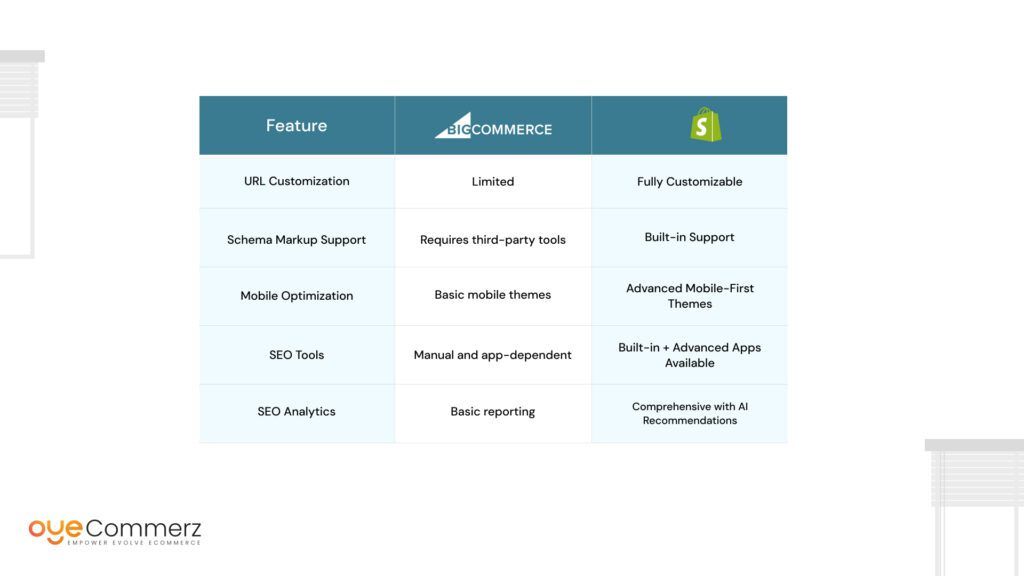
Why Shopify is Ideal for US-Based Businesses
For businesses in the US, where competition is fierce and customer expectations are high, Shopify offers several additional benefits:
- Local SEO Support: Easily set up localized pages to target US markets with precision.
- Integration with Social Channels: Shopify connects with Google Shopping, Facebook, and Instagram to boost visibility.
- Scalability: As your business grows, Shopify can handle increased traffic and product catalogs without compromising SEO performance.
How Shopify Solves BigCommerce SEO Limitations for Business Growth
Switching to Shopify from BigCommerce can effectively resolve many of the BigCommerce SEO limitations that hinder your site’s search performance. With Shopify’s robust SEO tools, customizable features, and built-in support, businesses can achieve better rankings, improved traffic, and ultimately, enhanced conversions. Let’s explore how Shopify solves these common SEO challenges and offers a superior alternative to BigCommerce.
1. Flexible and SEO-Friendly URL Structures
One of the most restrictive features of BigCommerce is its rigid URL structure, which limits businesses from optimizing URLs for better search visibility. Shopify offers:
- Custom URL Paths: Shopify enables full control over URL structure, allowing businesses to create keyword-rich URLs that align with search intent and improve SEO rankings.
- Automatic 301 Redirects: Shopify simplifies the process of managing redirects, ensuring any URL changes do not result in broken links, preserving SEO value and preventing traffic loss.
This flexibility allows Shopify users to structure their URLs in an SEO-friendly way, leading to better visibility in search engine results pages (SERPs).
2. Enhanced Technical SEO Features
Shopify excels in offering technical SEO features that BigCommerce often lacks:
- Schema Markup Integration: Shopify natively supports schema markup, which allows search engines to display rich snippets such as product ratings, prices, and availability. This can lead to higher click-through rates (CTRs) and more organic traffic.
- Automatic Canonical Tags: Shopify automatically generates canonical tags for pages to prevent duplicate content issues, which is a common problem for BigCommerce users. This helps preserve link equity and improves your overall SEO performance.
- Optimized Page Speed and Core Web Vitals: Shopify’s CDN ensures fast page load times, and its mobile optimization tools ensure that your site meets Google’s Core Web Vitals standards. Faster load times translate to lower bounce rates and higher rankings.
These technical improvements make Shopify a better option for businesses aiming to enhance their technical SEO without the need for custom development.
3. Mobile-First Design for Better Rankings
Google’s mobile-first indexing prioritizes websites that provide an excellent mobile experience, and Shopify offers several tools to ensure your site is mobile-optimized:
- Mobile-Responsive Themes: Shopify’s pre-designed themes are mobile-optimized, ensuring your store looks great and performs well on all devices. This is crucial because mobile optimization directly impacts SEO and user experience.
- Improved Core Web Vitals: Shopify provides tools to improve key mobile performance metrics, such as Largest Contentful Paint (LCP), Cumulative Layout Shift (CLS), and First Input Delay (FID), which are all important ranking factors in Google’s algorithm.
By ensuring optimal performance on mobile, Shopify helps businesses improve SEO scores and appeal to a larger, mobile-first audience.
4. Advanced SEO Tools and Integrations
Shopify provides a wide range of built-in SEO features that make optimizing your store easy and efficient.
- Meta Tag and Alt Text Editing: Shopify allows you to edit meta titles, descriptions, and image alt text directly, ensuring that all your pages and products are optimized for search engines.
- Keyword Optimization: With integrated apps like SEO Manager and Plug In SEO, Shopify provides tools for keyword tracking, optimization suggestions, and more, helping you easily target high-value keywords and track your progress.
- XML Sitemap Generation: Shopify automatically generates an XML sitemap, making it easier for search engines to crawl and index your content. You can also submit your sitemap directly to Google Search Console for faster indexing.
These built-in tools save businesses time and resources, eliminating the need for third-party apps and manual optimization.
5. Comprehensive SEO Analytics and Reporting
Shopify provides detailed analytics that help businesses track and improve their SEO performance.
- Real-Time SEO Reporting: Shopify offers insights into key SEO metrics, such as organic traffic, keyword rankings, and conversion rates, all accessible from your dashboard.
- Google Analytics and Search Console Integration: Shopify seamlessly integrates with Google Analytics and Search Console, allowing you to track your SEO efforts more comprehensively.
- Actionable Insights: Shopify’s AI-powered tools offer personalized recommendations to improve your site’s SEO, helping you stay on top of best practices and algorithm changes.
How OyeCommerz Can Help You Overcome BigCommerce SEO Limitations
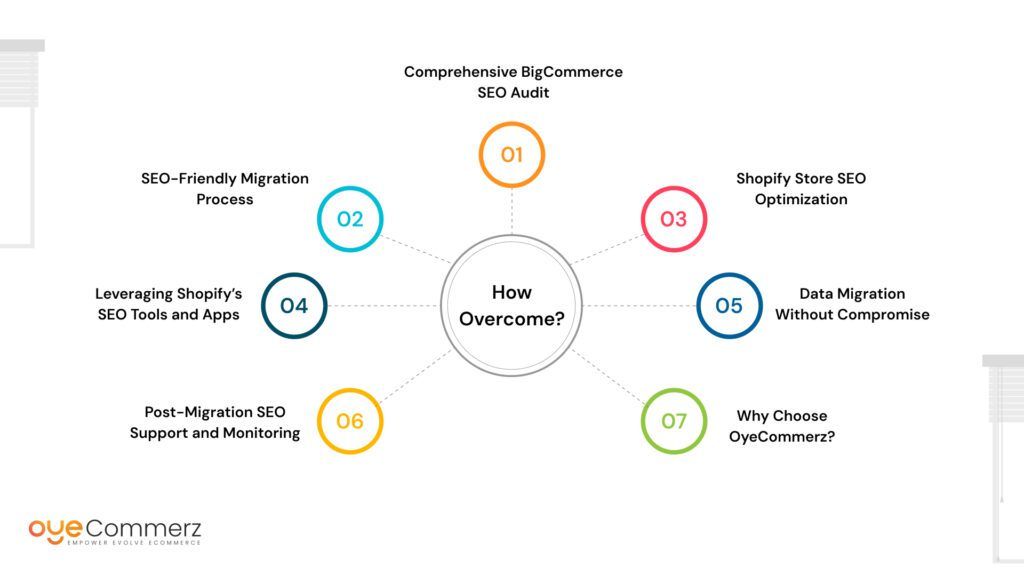
Switching from BigCommerce to Shopify can seem like a daunting task, especially for businesses already struggling with BigCommerce SEO limitations. At OyeCommerz, we specialize in making this transition seamless, efficient, and result-driven. Here’s how we can support your business every step of the way:
1. Comprehensive BigCommerce SEO Audit
Before starting your migration, our team conducts a thorough SEO audit to identify:
- Existing SEO gaps and challenges specific to your BigCommerce store.
- Pages and content that require optimization to maintain or improve rankings during migration.
- Opportunities to enhance SEO performance in your new Shopify store.
This audit ensures that no SEO value is lost during the migration process.
2. SEO-Friendly Migration Process
At OyeCommerz, we prioritize preserving and enhancing your SEO performance throughout the migration. Our process includes:
- 301 Redirects: We ensure that all existing BigCommerce URLs are redirected to their new Shopify counterparts to maintain link equity and prevent traffic loss.
- Metadata Transfer: All titles, descriptions, and alt tags are seamlessly transferred and optimized for better rankings.
- Canonical Tags: We implement proper canonical tags to avoid duplicate content issues during and after migration.
Our migration experts handle the technical details so you can focus on growing your business.
3. Shopify Store SEO Optimization
Post-migration, we optimize your new Shopify store for maximum visibility and search performance:
- Custom URL Structuring: We create clean, SEO-friendly URLs that improve search engine readability.
- Keyword Integration: Using targeted keywords, we enhance your product pages, category pages, and blog content for better rankings.
- Mobile Optimization: Ensuring your store is mobile-first and optimized for Google’s Core Web Vitals.
Our tailored optimization strategy ensures your Shopify store is ready to compete in the search engine results pages (SERPs).
4. Leveraging Shopify’s SEO Tools and Apps
We integrate advanced Shopify tools and apps into your store to simplify and enhance your SEO efforts:
- SEO Booster Apps: Automate routine tasks like metadata updates and sitemap generation.
- Performance Monitoring Tools: Track rankings, traffic, and conversions directly from Shopify’s dashboard.
- AI-Driven Insights: Implement smart SEO recommendations to stay ahead of competitors.
These tools provide ongoing SEO support to help you maintain and grow your search visibility.
5. Data Migration Without Compromise
We understand the importance of your store data and its impact on SEO. Our team ensures that:
- Product Information: Descriptions, images, and inventory details are migrated accurately.
- Customer Data: Retain your existing customer base and purchase history for personalized marketing.
- Analytics Data: Transfer Google Analytics and Search Console setups to continue tracking performance seamlessly.
This meticulous approach ensures your business operates smoothly post-migration, with no interruptions to your SEO strategy.
How to Transition Away from BigCommerce SEO Limitations: Partnering with Experts
Overcoming BigCommerce SEO limitations is not just about migrating to a better platform—it’s about doing it the right way to ensure sustained growth and improved performance. Migrating to Shopify can solve many of these SEO challenges, but the process requires careful planning and expertise. Here’s how you can ensure a smooth transition by addressing your SEO pain points and leveraging professional assistance.
1. Assessing Your Current SEO Performance on BigCommerce
Before making the switch, it’s crucial to evaluate your existing SEO performance:
- Analyze Traffic Patterns: Identify which pages drive the most organic traffic and require extra attention during migration.
- Keyword Rankings: Pinpoint your top-ranking keywords that need to be preserved or improved on Shopify.
- Identify Gaps: Highlight areas where BigCommerce’s limitations have negatively impacted your rankings, such as restricted URL structures or slow page speed.
This assessment lays the groundwork for a strategic migration.
2. Planning a Seamless Migration to Shopify
A well-planned migration ensures that you don’t lose any SEO equity during the transition. Key steps include:
- 301 Redirect Strategy: Map out all your BigCommerce URLs to Shopify counterparts to maintain search engine rankings and avoid broken links.
- Metadata Transfer: Safeguard all meta titles, descriptions, and tags, optimizing them for Shopify’s flexible SEO capabilities.
- Sitemap Updates: Ensure a new XML sitemap is generated and submitted to Google to facilitate faster indexing of your Shopify store.
Migrating without compromising SEO is critical for maintaining your online visibility.
3. How Shopify Eliminates BigCommerce SEO Challenges
Once you’ve migrated, Shopify’s advanced SEO features can help your business grow:
- Customizable URL Structures: Unlike BigCommerce, Shopify allows businesses to create clean, optimized URLs for better search rankings.
- Built-In Mobile Optimization: Shopify themes are responsive and designed with mobile-first indexing in mind, giving you a competitive edge in SERPs.
- Fast Page Speeds: Shopify’s infrastructure ensures faster load times, directly improving user experience and SEO performance.
These features ensure your new Shopify store is set up for long-term success.
4. Partner with OyeCommerz for a Hassle-Free Migration
At OyeCommerz, we specialize in helping businesses transition from BigCommerce to Shopify while addressing their specific SEO challenges. Here’s what we offer:
- End-to-End Migration Support: From initial SEO audits to post-migration monitoring, we handle every aspect of your transition.
- Custom SEO Strategies: We optimize your Shopify store for better rankings, higher traffic, and increased conversions.
- Ongoing Support: After migration, our team provides continuous SEO assistance to ensure your business stays ahead of competitors.
5. Why Migrate Now?
Delaying your migration can lead to missed opportunities and stagnating growth. By addressing BigCommerce SEO limitations now, you can:
- Enhance your visibility on search engines.
- Improve your site’s user experience.
- Future-proof your business with Shopify’s scalable platform.
Key Benefits of Migrating from BigCommerce to Shopify to Overcome SEO Limitations
Migrating from BigCommerce SEO limitations to Shopify’s robust platform offers substantial benefits for businesses looking to improve their online visibility, user experience, and overall SEO performance. Shopify’s advanced SEO features, flexible structure, and built-in optimization tools help businesses overcome many of the challenges they face on BigCommerce. In this section, we will outline the key advantages of making the move to Shopify.
1. Improved URL Structure and Customization
One of the major BigCommerce SEO limitations is its rigid URL structure, which restricts your ability to create keyword-rich, SEO-optimized URLs. Shopify, on the other hand, provides:
- Customizable URL Paths: With Shopify, you have full control over your URL structure, allowing you to create clean, SEO-friendly URLs tailored to your target keywords.
- Clear Hierarchy: Shopify allows businesses to easily organize products into collections, which are reflected in SEO-friendly URL paths, making it easier for search engines to index and rank your pages.
By migrating to Shopify, you can significantly improve the way your URLs are structured, boosting your SEO performance and site visibility.
2. Better Control Over Metadata and On-Page SEO
BigCommerce has some limitations when it comes to editing and optimizing metadata, which can affect your store’s ability to rank well. Shopify provides:
- Meta Title and Description Customization: Shopify allows easy customization of meta titles, descriptions, and alt text for images, making it easier to target specific keywords.
- SEO-Friendly Page Titles: Shopify offers full control over page titles, ensuring they are concise, relevant, and optimized for search engines.
- Easy On-Page Optimization: The platform allows for efficient on-page SEO, including header tags, image alt text, and internal linking, ensuring that your content is optimized for both search engines and users.
By migrating to Shopify, you gain better control over your site’s metadata, improving your SEO efforts and increasing organic search visibility.
3. Enhanced Mobile Optimization for Better Rankings
With Google’s mobile-first indexing, mobile optimization has become a crucial factor for SEO success. Shopify excels in this area by offering:
- Responsive Themes: All Shopify themes are mobile-optimized, ensuring that your store provides a seamless shopping experience on all devices.
- Core Web Vitals Optimization: Shopify’s infrastructure is designed to meet Google’s Core Web Vitals standards, which are essential for ranking well in search results.
- Mobile-Friendly Designs: The mobile-first approach that Shopify emphasizes ensures faster load times and better user engagement on mobile devices, which positively impacts your SEO rankings.
Migrating to Shopify ensures your store is fully optimized for mobile, helping you rank better in mobile search results.
4. Speed and Performance Improvements
Page speed is a critical factor in SEO rankings, and BigCommerce often struggles with delivering optimal performance across all devices. Shopify addresses this challenge by:
- Fast Page Load Times: Shopify uses a content delivery network (CDN) that ensures fast loading speeds globally, improving user experience and search engine rankings.
- Built-In Caching: Shopify automatically caches your pages, reducing load times and improving site performance, a key factor in SEO ranking algorithms.
- Optimized Images and Files: Shopify automatically compresses images and files to ensure faster load times without sacrificing quality.
With Shopify, you’ll experience faster load times, which not only boosts your SEO but also helps reduce bounce rates and improves user retention.
Ready to Migrate to Shopify ? Let Us Help You Make the Switch!
Conclusion
Overcoming BigCommerce SEO limitations is essential for staying competitive in the ever-evolving eCommerce landscape. Shopify’s advanced SEO features, mobile optimization, faster page speeds, and robust technical tools offer a significant advantage for businesses looking to improve search rankings, enhance user experience, and drive more organic traffic.
Migrating to Shopify not only solves the SEO challenges faced on BigCommerce but also opens doors for future growth, scalability, and better visibility on search engines. With the right strategies and professional support, your Shopify store can be fully optimized for success.
Contact us today to schedule a free consultation and discover how we can help you make the most of your Shopify store’s SEO potential!

